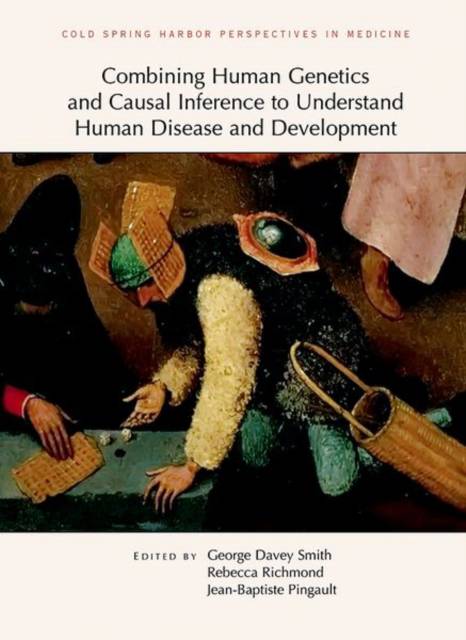
- Retrait gratuit dans votre magasin Club
- 7.000.000 titres dans notre catalogue
- Payer en toute sécurité
- Toujours un magasin près de chez vous
- Retrait gratuit dans votre magasin Club
- 7.000.000 titres dans notre catalogue
- Payer en toute sécurité
- Toujours un magasin près de chez vous
Combining Human Genetics and Causal Inference to Understand Human Disease and Development
123,95 €
+ 247 points
Description
In human genetics, causal inference methods leverage large omics data sets and phenotypic information to decipher various cause-and-effect relationships in human health and disease (e.g., smoking and lung cancer). The focus of such work is typically on modifiable variables (e.g., behavior or environmental exposure) that impact disease onset, progression, and outcome. A better understanding of these variables can lead to interventions and therapeutics that have a desirable impact on public health. Written and edited by experts in the field, this collection from Cold Spring Harbor Perspectives in Medicine examines advances in causal inference approaches in human genetics and how they are being used to enhance our understanding of human development and disease. The contributors discuss family-based study designs for causal inference, including twin designs, adoption designs, and in vitro fertilization designs, that separate inherited factors from perinatal environmental exposures. They also review various types of Mendelian randomization--a population-based approach that is growing in utility and popularity--as well as their integration with family-based designs. The use of these approaches to investigate causal mechanisms in specific scenarios (e.g., maternal smoking during pregnancy and ADHD in offspring) is also covered. This volume is therefore an essential read for geneticists, epidemiologists, and all biomedical scientists and public health professionals dedicated to using genetic information to improve human health.
Spécifications
Parties prenantes
- Editeur:
Contenu
- Nombre de pages :
- 254
- Langue:
- Anglais
- Collection :
Caractéristiques
- EAN:
- 9781621823810
- Date de parution :
- 31-01-22
- Format:
- Livre relié
- Format numérique:
- Genaaid
- Dimensions :
- 178 mm x 257 mm
- Poids :
- 748 g






